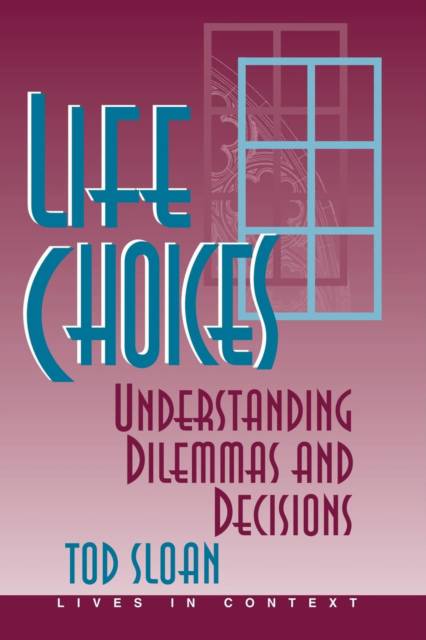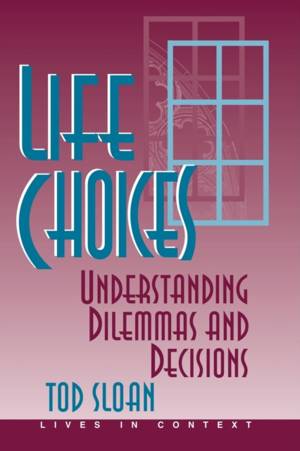
- Afhalen na 1 uur in een winkel met voorraad
- Gratis thuislevering in België vanaf € 30
- Ruim aanbod met 7 miljoen producten
- Afhalen na 1 uur in een winkel met voorraad
- Gratis thuislevering in België vanaf € 30
- Ruim aanbod met 7 miljoen producten
Zoeken
€ 79,45
+ 158 punten
Uitvoering
Omschrijving
This book may be viewed as an ?antiguide? to decisionmaking. It rejects mechanical formulas and urges self-reflection and a critique of ideology. Through close readings of fifteen life history interviews, Tod Sloan creates a framework for the interpretation of dilemmas and decisions. Ultimately, we see that a life choice or turning point comprises three phases?dilemma, deliberation, and decision. As each individual recounts a specific instance when a life choice was necessary, the supporting analysis reveals the framework that triggered the sense that a turning point had been reached.Sloan's basic premise is that common sense and mainstream psychology fail to enlighten us about what is actually involved in major life choices. Individuals tend to make decisions that are not in their best interests and, in fact, these decisions tend to reinforce the sociocultural structures that were initially instrumental in the creation of their dilemmas. By reading the extensive case histories and examining the ways in which the subjects' cultural and social embeddedness interacts with unconscious processes, the reader can develop the ability to understand and think critically about personal life decisions.Developed as an antidote to traditional self-help books, Sloan's decision analysis framework is derived from cognitive, phenomenological, and psychoanalytic theory. Each aspect of the decisionmaking process?from the emergence of a dilemma to postdecision regret?can be understood by considering the contexts of personality, life history, practical arrangements, and ideology.
Alleen bij Standaard Boekhandel
+ 158 punten op je klantenkaart van Standaard Boekhandel
Beoordelingen
We publiceren alleen reviews die voldoen aan de voorwaarden voor reviews. Bekijk onze voorwaarden voor reviews.












